Fostering a safe and inclusive race
Published on August 5th, 2023
When a male skipper in The Ocean Race 2023 left the event following an incident with a female member of his team during the USA stop, which triggered a legal probe over sexual assault allegations, it was unwelcome news for an event seeking to open doors for women, not close them.
To improve the climate moving forward, The Ocean Race is advancing its safeguarding policies with the establishment of a safeguarding charter and the appointment of Victoria Low as Safeguarding Officer.
Low is no stranger to event, having been involved in five different campaigns, three of which were all-female teams (Heineken, EF Education and Team SCA). Now, she is taking on a new role with The Ocean Race, as the first ever Safeguarding Officer.
How did this role come about?
At the start of this year the leadership of The Ocean Race began laying the foundations to put in place a safeguarding structure specific to The Ocean Race. The ambition was to create a new role of a Safeguarding Officer, which would be independent of The Ocean Race organization, that would be a safe space for reporting and equally ensure full transparency on any issues brought forward.
It is important to underline that safeguarding is not gender specific – it can help and support anyone. The role works in a similar way as the International Jury in terms of being supported by the race organization but sitting independent from it, and an expert advisory panel will be established to support the role.
I have been tasked to create and develop this area and, as Safeguarding Officer, be responsible for ensuring a safe and inclusive environment. This is not a role that I take lightly, but is one where I will be able to use my experience in this sport, as well as my more recent work with the World Sailing Trust.
The first step will be to establish a Safeguarding Charter, and update the series of supporting policies and processes in line with World Sailing’s new Safeguarding Policy. The Ocean Race has zero-tolerance of abuse, bullying, or harassment in any form and we will be ensuring that we have the processes in place to support anyone affected.
Why does The Ocean Race need safeguarding?
The Ocean Race has long been an industry leader in supporting women and new talent in the sport, with more females competing in the event than in any other sailing competition outside of the Olympics. The Race is still the only major international sporting event where men and women compete on the same team on an equal basis.
But the racing crews represent one small part of all the people engaged around The Ocean Race as with each edition, age and cultural diversity is growing across the whole The Ocean Race family.
While being more inclusive and diverse is the right way to continue to grow the sport and make it relevant, ensuring a safe and inclusive environment, fulfilling legal and ethical obligations and safeguarding individuals in the event as well as the reputation and trustworthiness of the sport, are equally important.
Why is this relevant for The Ocean Race today?
Everyone who is involved in this race, be they team members, stakeholders, event employees, or those within the wider The Ocean Race family, should feel safe, respected and included.
We have a responsibility to exercise a duty of care towards everyone involved. This duty encompasses providing a safe and secure environment, promoting the well-being of the whole The Ocean Race family and taking appropriate action in response to safeguarding concerns.
The Ocean Race is committed to the welfare of everyone involved in their event, and will be exercising zero-tolerance with any matter that contravenes the Safeguarding Charter.
What have you learned about the current state of the sailing world through your work to date with the World Sailing Trust?
Four years ago, I authored the World Sailing Trust’s Strategic Review into Women in Sailing, and it highlighted the endemic discrimination that is embedded in sailing.
The Review presented nine recommendations based around Policy and Best Practice, Increasing Female Participation and Developing Female Leadership and, as a sport, we are now slowly starting to see a shift in attitude and more opportunities for women opening up. But there is still so much work to do.
I am also a Trustee of The Magenta Project, which was formed by the crew of Team SCA at the end of the 2014-15 Race, to strive to create pathways for women in professional sailing. The Magenta Project has an impressive mentoring program that is now in its fifth year.
This edition of the Race has seen some 10 mentees taking part across the fleet, clearly demonstrating that creating networks in turn provides opportunities to be part of events such as The Ocean Race.
What is first for you with The Ocean Race?
First up is to work in collaboration with existing organizations, including World Sailing, to understand best practice and from that update the series of procedures specific to The Ocean Race.
The core of which is a confidential and secure space for any individual to come forward with any concerns, or safeguarding issues, whether current or historic. It is important to underline that safeguarding is not gender specific – it can help and support anyone.
The Ocean Race is the first major global sailing event to create this role as separate to an existing HR function, or to that of the International Jury, which has traditionally heard safeguarding cases brought to it through Rule 69 of the Racing Rules of Sailing.
We are not looking to duplicate or take over the existing formal processes, but The Ocean Race is a unique event, and we want to be able to support people and ensure that they feel safe, respected and included while they are part of The Ocean Race family.


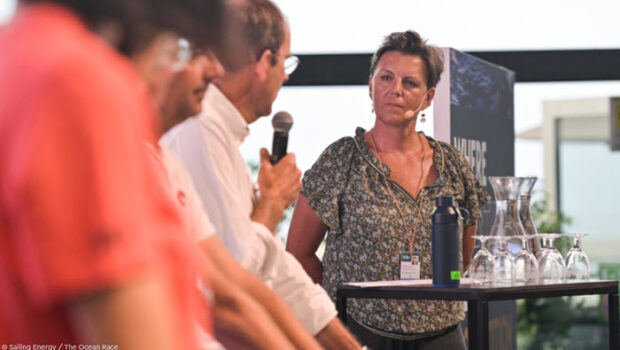


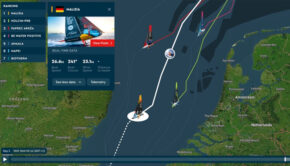
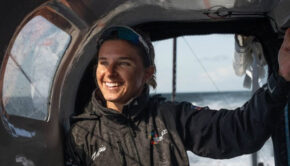
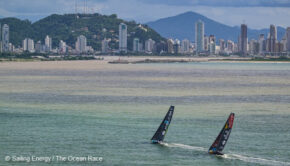
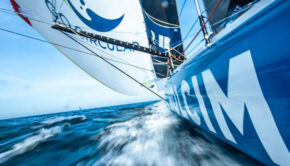
 We’ll keep your information safe.
We’ll keep your information safe.